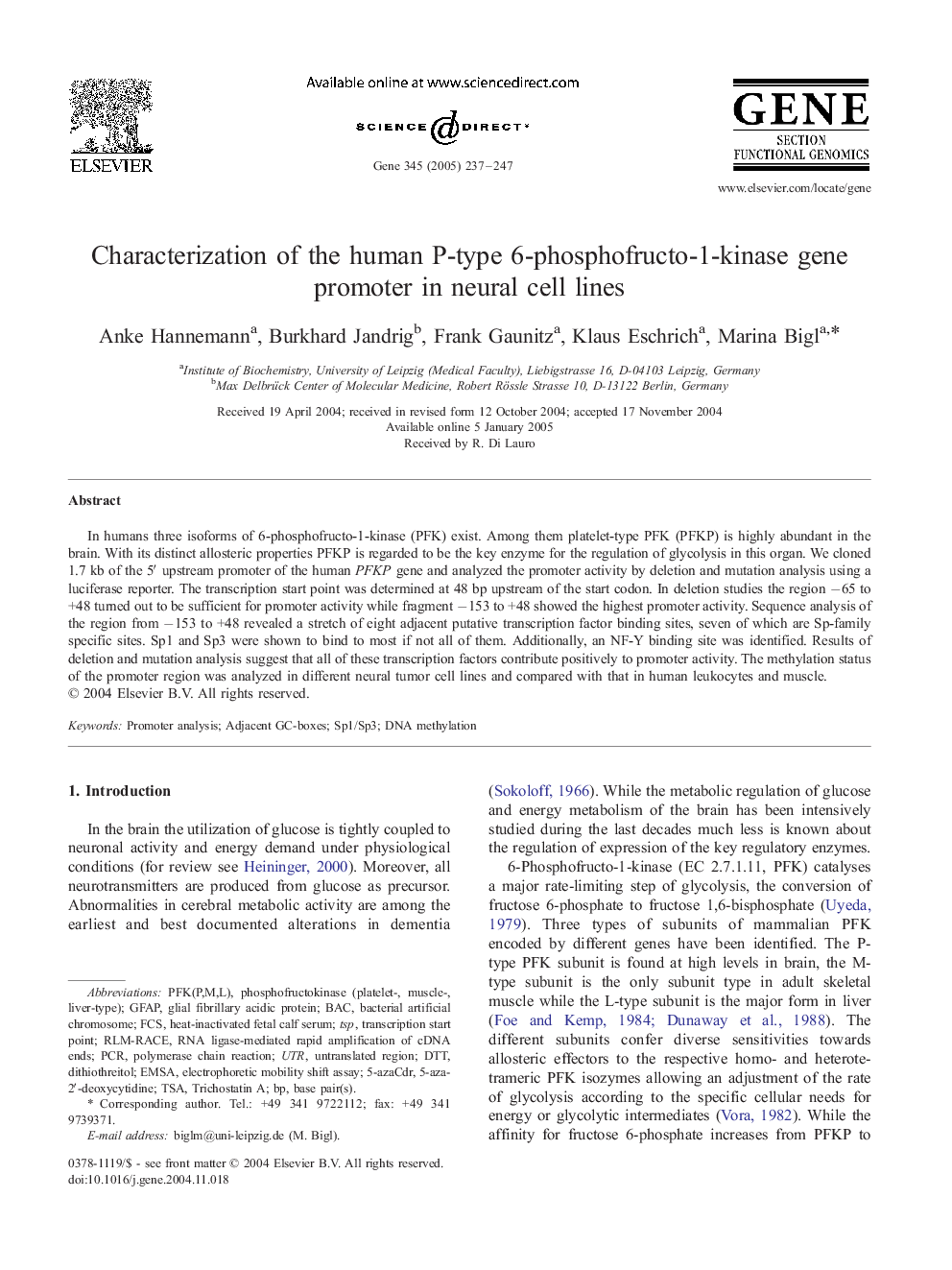| Article ID | Journal | Published Year | Pages | File Type |
|---|---|---|---|---|
| 9127240 | Gene | 2005 | 11 Pages |
Abstract
In humans three isoforms of 6-phosphofructo-1-kinase (PFK) exist. Among them platelet-type PFK (PFKP) is highly abundant in the brain. With its distinct allosteric properties PFKP is regarded to be the key enzyme for the regulation of glycolysis in this organ. We cloned 1.7 kb of the 5â² upstream promoter of the human PFKP gene and analyzed the promoter activity by deletion and mutation analysis using a luciferase reporter. The transcription start point was determined at 48 bp upstream of the start codon. In deletion studies the region â65 to +48 turned out to be sufficient for promoter activity while fragment â153 to +48 showed the highest promoter activity. Sequence analysis of the region from â153 to +48 revealed a stretch of eight adjacent putative transcription factor binding sites, seven of which are Sp-family specific sites. Sp1 and Sp3 were shown to bind to most if not all of them. Additionally, an NF-Y binding site was identified. Results of deletion and mutation analysis suggest that all of these transcription factors contribute positively to promoter activity. The methylation status of the promoter region was analyzed in different neural tumor cell lines and compared with that in human leukocytes and muscle.
Keywords
FCSEMSAUTRRNA ligase-mediated rapid amplification of cDNA endsSp1/Sp3RLM-RACETSPDTTTSAGFAP5-Aza-2′-deoxycytidineBACElectrophoretic mobility shift assayPromoter analysisTrichostatin ABase pair(s)dithiothreitolheat-inactivated fetal calf serumDNA methylationuntranslated regiontranscription start pointpolymerase chain reactionPCRGlial fibrillary acidic proteinbacterial artificial chromosome
Related Topics
Life Sciences
Biochemistry, Genetics and Molecular Biology
Genetics
Authors
Anke Hannemann, Burkhard Jandrig, Frank Gaunitz, Klaus Eschrich, Marina Bigl,
